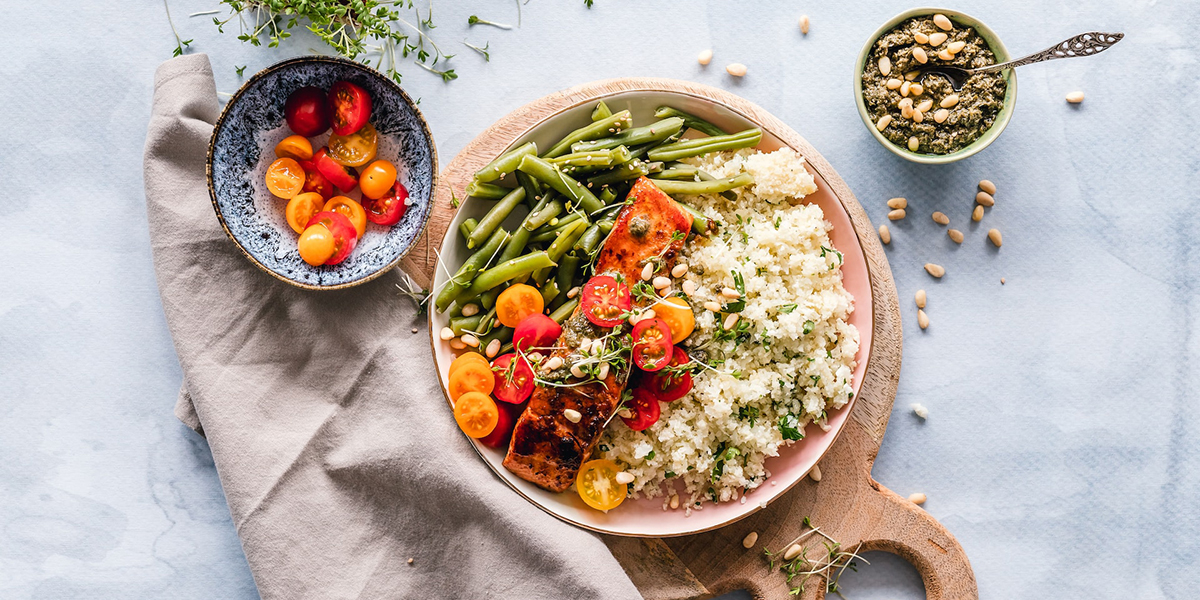The Gut-Brain Connection

The Role of Nutrition in Mental Health
The brain influences the body and vice versa. We hope by now that’s a no-brainer. But when we look at how nutrition works, we see that the connection to brain health is tighter than imagined. You are what you eat, after all!
Cutting-edge research is emerging on the microbiome, and one thing is for sure: there is a robust relationship between gut health and mental health. If your nutrients are imbalanced, you’re not alone. Studies have shown that 40% of the population has been found to have inadequate intakes of vitamin A, C, D, and E, calcium, and magnesium. Research developments show that it’s no longer a question about if nutrition plays a role in mental health but how?
If you’re looking to boost your nutrients, here are 13 powerhouse mental health snacks:
- Raw almonds
- Sweet potatoes
- Bone broths
- Avocado
- Wild salmon or fatty fish
- Coconut (oil included)
- Beets
- Raw butter
- Cacao
- Oats and gluten-free grains
- Coffee/tea (green and black)
- Sauerkraut and other fermented foods
Nutrition experts recommend behavioural strategies to combat food cravings and substance use, too:
- Keep addictive foods or substances out of sight
- Reduce stress to avoid drinking or eating as a coping mechanism
- Avoid foods or situations that trigger or come before your craving
- Find effective coping strategies like reading or exercise that help you relax
- Drink lots of water
- If a comfort food or drink doesn’t fit with your goals, find a substitute
- Plan ahead
- Give yourself compassion with your cravings, in small portions, a couple of days a week
- You may want a substitute to improve your mental health or defend against a craving
Nutrition can also be a causal component of a substance use challenge and a critical aspect of resetting when you’re making a change. Why?
Because researchers have found that we use substances to make up for nutrient deficits. Our substance of choice provides clues about those nutritional deficits.
For example, let’s say you’ve boosted your nutrients and decide to make a change. You reduce your consumption, and suddenly, you’re overwhelmed by an unrelenting sweet tooth. It can feel as if the universe is conspiring against you. Luckily, it’s temporary, and you’re not alone; there is solid evidence that explains the alcohol-sugar swap.
Why do you crave sugar?
Many of us crave alcohol, caffeine, drugs, or sugar and all of these substances have something in common. They trigger the release of feel-good chemicals (serotonin and dopamine) in the brain, making you feel happy, relaxed, and wanting more. When you remove or reduce your consumption, your brain panics. Your brain is clever and persistent; it looks for another substance that will offer the same relief, and that’s when you find yourself digging into the ice cream tub late at night. Scientists refer to this as addiction transfer.
It’s not just that your brain feels better with the support of a substance that promotes dopamine and serotonin release; its absence can make you feel unwell. Some common signs of low blood sugar are irritability, anxiety, shakiness, energy crashes, mood changes, and in some cases, panic. On top of that, heavy drinking can make you prone to hypoglycemia, another term for low blood sugar. So, it’s no wonder that you reach for sweets. It’s important to remember that your body is trying to fill a biological need, so shame and blame don’t belong. Your desire for sugar is not an indication of reduced willpower, and with time, your body will re-balance. Be gentle with yourself.
Here are some tricks to help you through sugar cravings:
- Keep your meals regular and prepare healthy snacks to moderate energy and mediate cravings. Provide your body with enough fat and protein to stabilize your blood sugars. Try to choose nutrients that break down slowly instead of those foods that break down quickly and can make you prone to a crash.
- On that note, start your day with protein, like eggs and nut butter. If your pick is a carb, mix in a protein to prevent an energy crash. Make sure you get enough calories throughout the day so that you don’t hit the wall in the evening.
- Think ahead to outsmart cravings. As the day wears on, you can be vulnerable to sugar cravings, so plan high-protein snacks like nuts or eggs. A great strategy is to hit the spot with the natural sweetness of the fruit.
- Don’t forget about the basics—sleep and movement. Inadequate levels of sleep contribute to sugar cravings, and exercise is the kind of dopamine booster you’ll want to invest in!
- Don’t be hard on yourself, but invest in your gut.
The gut and the brain are interdependent, and that’s where the name second brain comes from. The digestive system plays a crucial role in controlling the complex network of nerves and chemicals (over 100 million!) that send messages to our central nervous system. The second brain is responsible for neurotransmitters and the bacteria that regulate brain function. There is an undeniable connection between the brain, nutrients, and the body.
Access the ALAViDA TRAiL.